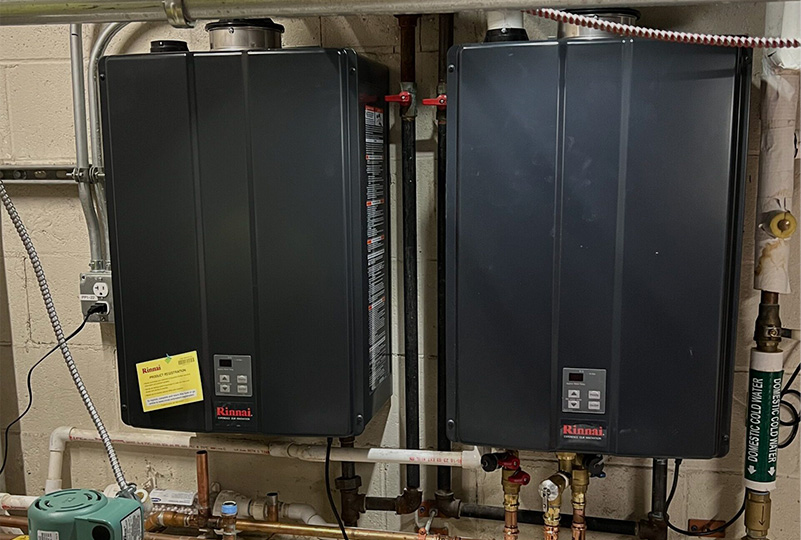In an effort to meet demand for hot water and recover during peak periods of hot water usage, many businesses turn to commercial gas water heaters. In fact, researchers report that gas-powered water heater systems are expected to see 5% compound annual growth rate (CAGR) between 2020 and 2026.
While the effectiveness of a gas fired water heater is attractive, some issues are inevitable. Gas and carbon monoxide (CO) are nothing to mess with. The consequences of a gas-fired water heater failure, including loose seals, faulty connections and improper venting, can be life-threatening. Results can include burns from hot surfaces or CO poisoning. Other catastrophic events from faulty gas-fired water heaters could include fires and explosions.
We at Medford Wellington Service Company replace a fair number of water heaters on a regular basis. We have relationships with some of Boston’s biggest hotels, restaurants and other establishments and the owners understand the importance of having competent people maintain their large, more sophisticated gas-fired equipment.
What it boils down to
While human safety is always the number one priority when dealing with gas-fired appliances, businesses can face great financial hardships when there is an issue. A new water heater replacement can cost anywhere from $5,000 to $30,000 for more advanced systems. But that is just the beginning.
Take for example a ruptured water heater in a restaurant. We generally get a call when water is seeping from the water heater. In addition to the cost of a new system, the business will expect to pay for water damage remediation and repair costs. They will also have to consider the loss of business they will experience during that time period of having no hot water, which is, of course, a regulatory necessity in a restaurant.
It generally takes us about 24 hours to replace a water heater and get it up and running. While our goal is to fix the problem the same day, it could mean the business is shut down for one to two days and has a major impact on revenue. The business would also need to consider their employees and the lost wages that could occur.
There are other financial losses, including spoiled inventory and contractual obligations from suppliers. At the end of the day, all of the financial losses add up, and it could put extra economic strain on the business and make it hard to recover.
Bottom line
Businesses have to be able to operate 24/7. That is why preventative maintenance is so crucial. By taking a more proactive approach in having experienced teams provide preventative maintenance on something like a gas fired water heater and monitoring such systems will ensure they remain in good working order and operate safely. All of this will prevent unexpected system failure and ensure businesses do not have to pay a steep price down the road.

